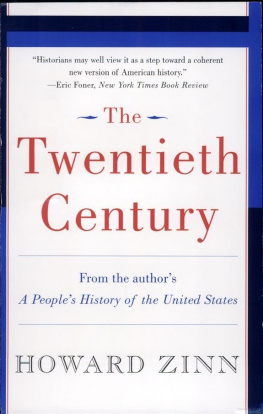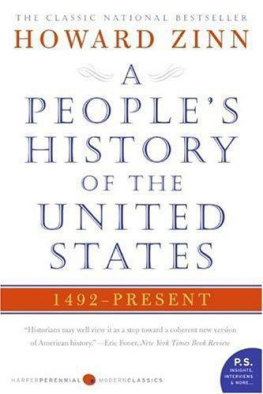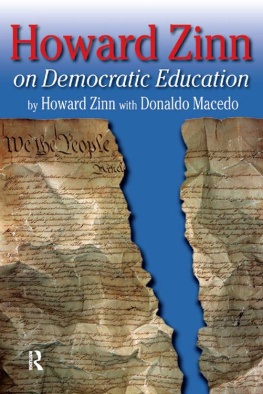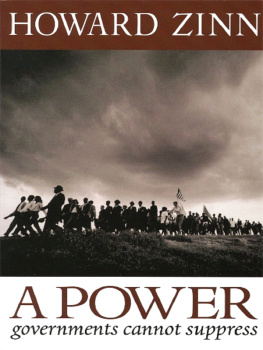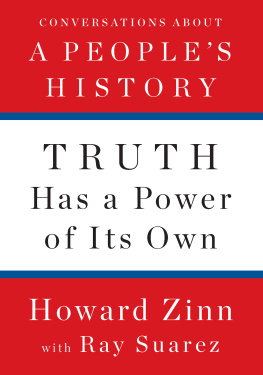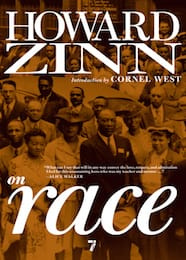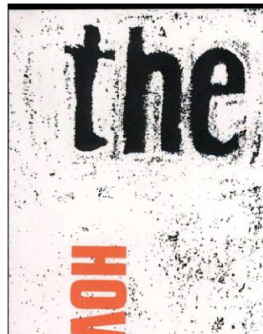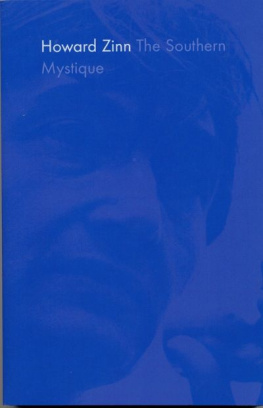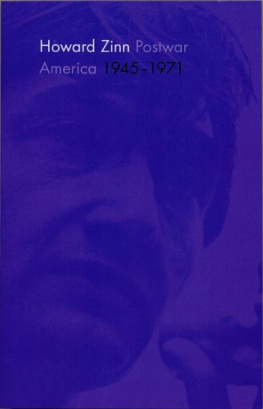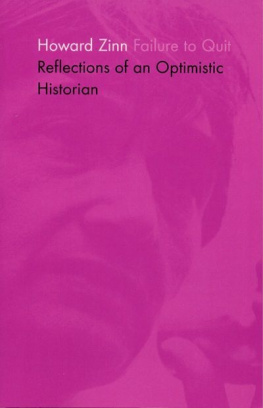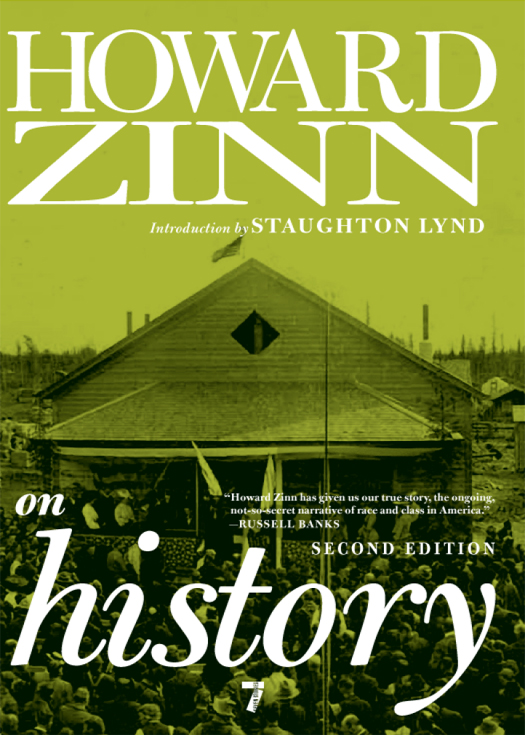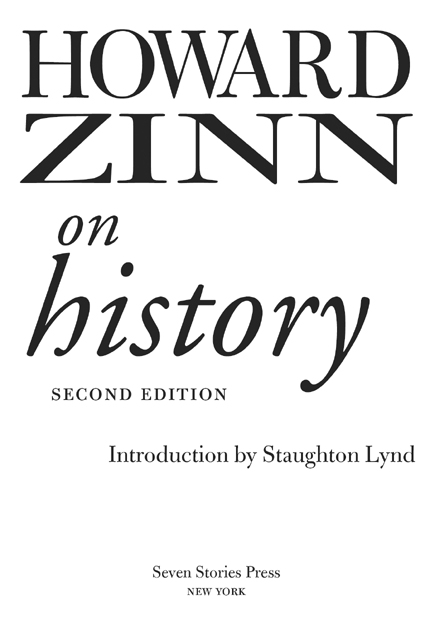Copyright 1964, 1966, 1969, 1971, 1972, 1975, 1976, 1977, 1980, 1982, 1988, 1990, 1991, 1992, 1993, 1996, 1998, 1999, 2000, 2001, 2002, 2006, 2008, 2011 by Howard Zinn
Introduction 2011 by Staughton Lynd
Most of the material in this book also appears in The Zinn Reader (Seven Stories Press, 1997) and The Zinn Reader, 2nd ed. (Seven Stories Press, 2009).
All rights reserved. No part of this book may be reproduced, stored in a retrieval system, or transmitted in any form, by any means, including mechanical, electronic, photocopying, recording or otherwise, without the prior written permission of the publisher.
Seven Stories Press
140 Watts Street
New York, NY 10013
www.sevenstories.com
Library of Congress Cataloging-in-Publication Data
Zinn, Howard, 1922-2010.
Howard Zinn on history / introduction by Staughton Lynd. -- 2nd ed., A Seven Stories Press first ed.
p. cm.
Some of the material in this book appears in The Zinn Reader, 2nd ed., Seven Stories Press, 2009--T.p. verso.
eISBN: 978-1-60980-234-9
I. Zinn, Howard, 1922-2010--Political and social views. 2. History--Philosophy. 3. United States--Politics and government--Philosophy. I. Title.
D16.9.ffl57 2011
901--dc22
2011016363
College professors may order examination copies of Seven Stories Press titles for a free six-month trial period. To order, visit www.sevenstories.com/textbook, or fax on school letterhead to (212) 226-1411.
v3.1
Contents
Howard Zinn, Historian
by Staughton Lynd
BEGINNINGS
A good place to begin an assessment of Howard Zinn as an historian is where he himself began: his masters essay on the Ludlow Massacre of 1914.
In the aftermath of Howards death some question has been raised as to whether he was really an historian, and more particularly, whether he was able to produce the paradigmatic product of the academic historian: detailed narrative history based on fully-cited primary sources. His account of the Ludlow Massacre should put that question to rest. It is available in Howards books The Politics of History and The Zinn Reader.
But the detailed rendering of a particular event did not satisfy Howard. He makes this crystal clear at the end of his Ludlow essay, where he writes:
How shall we read the story of the Ludlow massacre? As another interesting event of the past? Or as supporting evidence for an analysis of that long present which spans 1914 and 1970 [the year in which he was writing]. If it is read narrowly, as an incident in the history of the trade union movement and the coal industry, then it is an angry splotch in the past, fading rapidly amidst new events. If it is read as a commentary on a larger questionthe relationship of government to corporate power and of both to movements of social protestthen we are dealing with the present.
HISTORY AND CIVIL RIGHTS
Howards work on the Southern civil rights movement followed Howards years of apprenticeship at Columbia. Howard and his family moved to Atlanta when he was offered a job there. He taught at Spelman College from 1956 to 1963. Following his abrupt and unjust dismissal in June 1963, he used the years salary that came with the discharge letter to write two books: The Southern Mystique and SNCC: The New Abolitionists.
In the book on the Student Nonviolent Coordinating Committee, or SNCC, Howards account of the movement in Albany, Georgia is as taut and detailed as his essay on Ludlow. The difference is that in his writing about SNCC there are fewer footnotes. Howard drew on personal experience and oral history as well as written sources. His mini-histories of Albany, McComb, Hattiesburg, and the Mississippi Delta remain the building blocks for the subsequent work of scholars such as Clayborne Carson, Charles Payne, and Wesley Hogan.
The Southern Mystique is in some ways a more interesting book than its better-known counterpart. Recall that in connection with the Ludlow essay Howard asserts that historians must remove enough of the historical detail from their accounts so that common ground can be found between another period and our own. In effect, history must be reported in a way that makes possible sociological generalization.
Living in Atlanta through the years of sit-ins and Freedom Rides, Howard took a further step, formulating a methodology that would inform everything he later wrote. Everyone we knew struggled with the question, What was the best way to end racial segregation? Should it be sought by small, incremental steps that would gradually change attitudes? Or should there be decreed from above across-the-board change in the institutional environment, to which, in the course of time, whites would adjust first their conduct, and then their thinking?
Howard came down emphatically in favor of the second strategy. The example that seemed most compelling was the racial integration of the armed forces, which was only indirectly a product of history from below but most obviously was caused by orders from President Truman. A dozen years later it appeared to be working.
The Southern Mystique articulates a sophisticated rationale for this top down strategy. Persons inclined to dismiss Howard Zinn as a shallow popularizer should take a look at the Bibliographical Notes to The Southern Mystique. There one finds works of history: like Stanley Elkinss Slavery; The Strange Career of Jim Crow; W. E. B. DuBoiss The Souls of Black Folk; From Slavery to Freedom by John Hope Franklin; and The Mind of the South; of sociology: by Ross, Cooley, Mannheim, Merton, and Franklin Frazier; of social psychology: by Harry Stack Sullivan, Kurt Lewin, and Gardner Murphy; as well as classics of the day by Herbert Marcuse and Norman Brown.
The argument of The Southern Mystique goes something like this. The search for causes is a fools errand: it will go on forever, and can never be definitive. Instead of an endless, wandering search for causes, Howard thought, we should focus on the present. Everyone has a hierarchy of values. Racism may well be one of them but it is unlikely to be the thing that anyone cares about most. Change the external requirements of daily life so that whites must engage in equal status contact with blacks in order to achieve their highest priorities, and over time, attitudes will change in response.
After his discharge by Spelman College, Howard moved to Boston and found an academic livelihood in the political science department at Boston University.
Living in the Boston area and making ones living at a university there may not, for most people, be a formula for solidarity with the poor and oppressed. Howard made it that. After he had been at Boston University about fifteen years, the faculty, the secretaries and staff, and the librarians, all organized unions and with various grievances, and at different times, went on strike. Howard was cochair of the strike committee of the faculty union. Like the workers of the Gdansk shipyard in Poland, he and a few other teachers urged fellow faculty members to stay on strike until the university administration agreed to a contract not only with themselves, but also with university secretaries, although to do so might have been viewed as a violation of the new faculty contract banning sympathy strikes.
Ten years later, when Howard decided to retire, at the suggestion of his wife Roz he ended his last class half an hour early and together with a hundred students joined a picket line of workers at the university School of Nursing who were protesting an administration decision to close the school because it was not making enough money.


